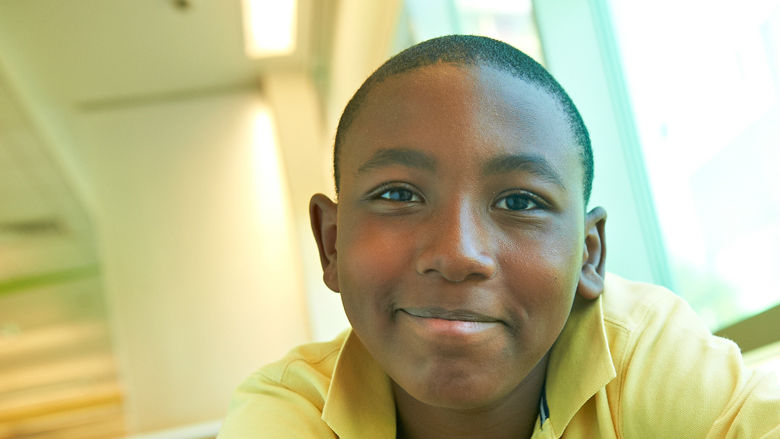Caring for Your Child
Family-centered Care
At Children's Hospital of Philadelphia (CHOP), we are committed to providing the best care and services to you and your child. We value our ability to partner with parents and family members in the care of their children, which is very important to our philosophy of care. This partnership with families in the care of their loved ones is often referred to as family-centered care.
Our philosophy of care
The staff of Children's Hospital of Philadelphia respects each family's values, needs, cultures, resources and strengths. We strive to provide the highest quality of care by successfully blending patient care, education and research.
A team approach to care
CHOP is an educational hospital. During your time here you will meet many physicians who are completing their training so they can specialize in the care of children. These are all highly qualified clinicians, and they work as part of a larger team overseen by the attending physician. Your child will not be cared for by a single doctor, but by a team of experts. You might also meet medical students who are training to become physicians.
Each team member has a particular role in your child's care. The team meets each week to carefully orchestrate the ongoing treatment plan and discuss your child's progress. These are the types of clinicians you may meet as part of your child's care team:
- Attending physicians. These are the senior physicians responsible for your child's care. There are attending physicians in each sub-specialty (such as Oncology, Endocrinology, and Cardiology) that are involved in the care of patients. These physicians are responsible for the team of clinicians who care for your child.
- Fellows. These are pediatricians (doctors who only treat children) who are completing several years of training to become a sub-specialist (such as a pediatric cardiologist). They have already completed their pediatric training, and typically work for three to four years in a subspecialty.
- Residents. These are doctors who have completed medical school and are becoming pediatricians. Pediatric residents typically spend three years completing their residency. There are many residents at the Hospital, and they are frequently involved in the care of our patients.
- Physician assistants. These are non-physician clinicians. They have received advanced training in medicine or surgery and work closely with an attending physician.
- Nurse practitioners. These are nurses who have completed advanced training and education to become clinical care providers. They have received advanced training in pediatrics and typically collaborate with the physician. They are able to order medications and tests like doctors.
- Nurses. These clinical caregivers provide direct service to patients on the units and support patients’ daily needs. They provide patients with medications that are ordered by the physicians, monitor vital signs and pain, provide comfort care, and are key members of the clinical team.
In addition to these doctors and nurses, you may meet a number of other people while your child is being cared for at CHOP. The following clinicians and staff members provide additional support for your child and family during the course of treatment.
- Social workers. Their training in child and family development, counseling, mental health and public advocacy allows these team members to help families solve problems and cope with the challenges of caring for a sick child.
- Child life specialists. They help children, teens and family members cope with the healthcare experience through developmentally appropriate activities for children, education about and preparation for medical procedures, and through emotional support.
- Dietitians. They work with children and teens to develop the best diet plan and to build healthy eating behaviors.
- Psychologists. They care for the psychological well-being of patients and families. They assess your ability and your child's ability to cope with unique healthcare situations and help your child understand the process.
- Physical therapists. They specialize in developing activities for children and young adults using exercise and therapeutic play to address movement, coordination, balance, strength and endurance issues.
- Occupational therapists. They help individuals achieve independence in all areas of their lives. They'll work with your child to enhance participation in everyday activities, play and sports, and the return to home or school.
- Speech-language pathologists. They specialize in the evaluation and treatment of speech, language and swallowing disorders.
- Chaplains. They provide spiritual or religious support to children and their families as they cope with their hospital experience. Chaplaincy staff is sensitive to the varied expressions of faith and are dedicated to providing support 24 hours a day.

